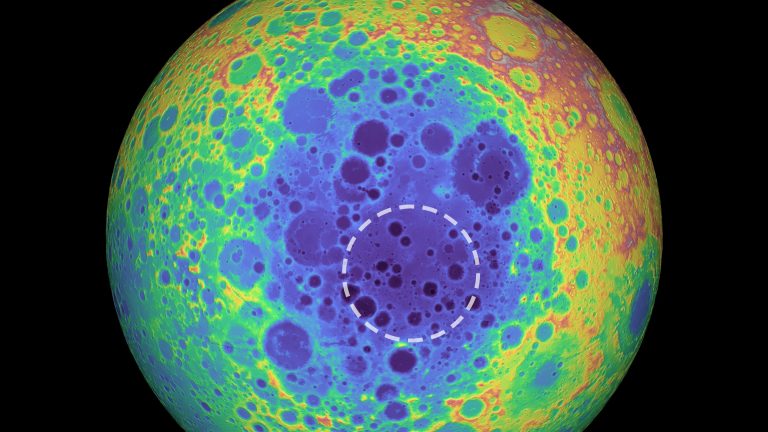A mysterious large mass of material has been discovered beneath the largest crater in our solar system—the Moon’s South Pole-Aitken basin—and may contain metal from the asteroid that crashed into the Moon and formed the crater, according to a Baylor University study.
“Imagine taking a pile of metal five times larger than the Big Island of Hawaii and burying it underground. That’s roughly how much unexpected mass we detected,” said lead author Peter B. James, Ph.D., assistant professor of planetary geophysics in Baylor’s College of Arts & Sciences. The crater itself is oval-shaped, as wide as 2,000 kilometers—roughly the distance between Waco, Texas, and Washington, D.C.—and several miles deep. Despite its size, it cannot be seen from Earth because it is on the far side of the Moon.
The study—”Deep Structure of the Lunar South Pole-Aitken Basin”—is published in the journal Geophysical Research Letters.
To measure subtle changes in the strength of gravity around the Moon, researchers analyzed data from spacecrafts used for the National Aeronautics and Space Administration (NASA) Gravity Recovery and Interior Laboratory (GRAIL) mission.
Read more HERE
Ask me anything
Explore related questions





